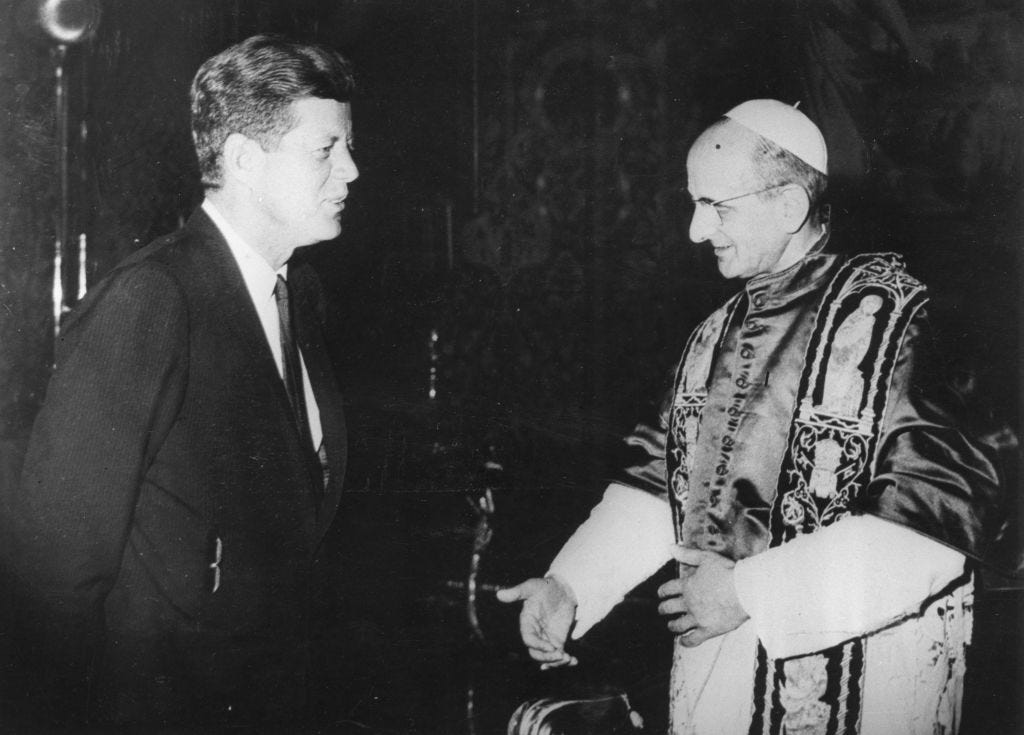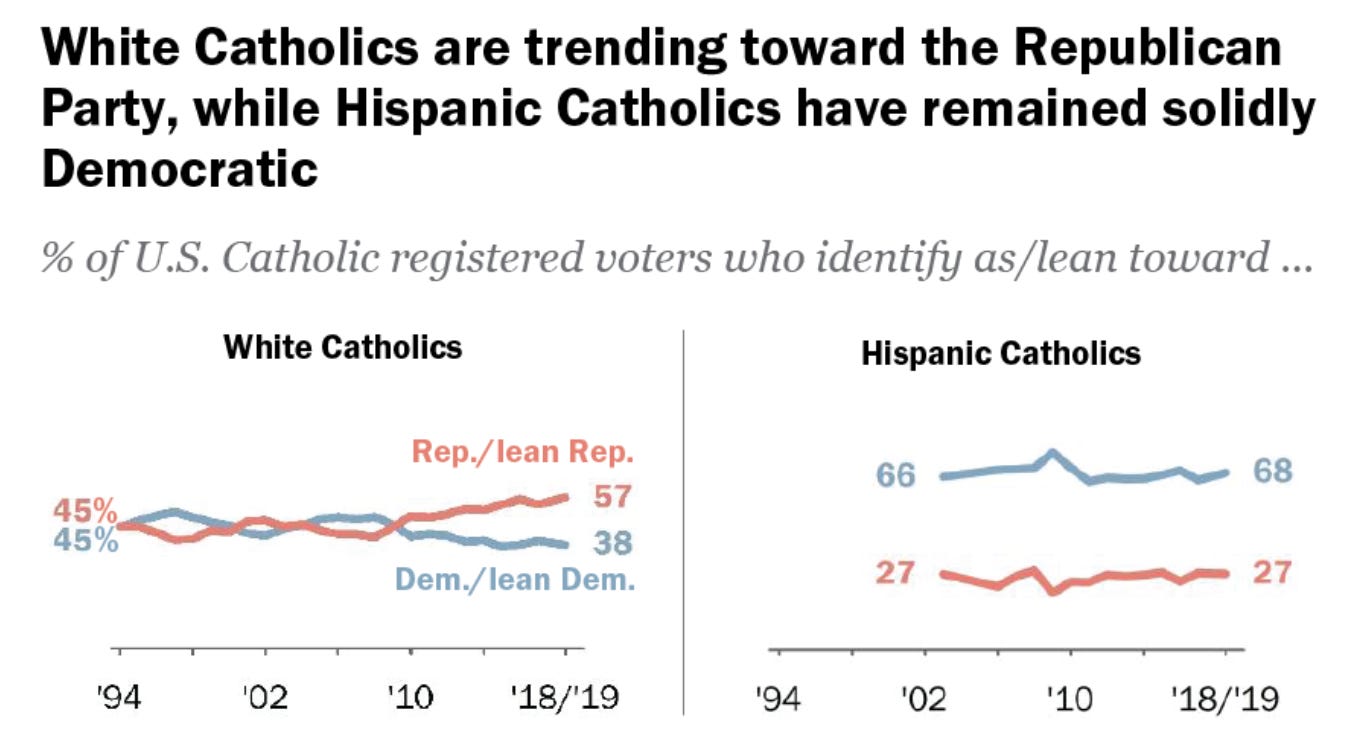Election Countdown, 217 Days to Go: As ‘Faith’ Curdles Into Cult.
The most useful advice about religion-and-politics in the time of America's second Catholic president comes from the first Catholic in the White House, 64 years ago.
John F. Kennedy, first Catholic president, meeting the newly installed Pope Paul VI in the Vatican in the summer of 1963. Kennedy, who had battled suspicions that he’d bring his religion into the White House, laid out demarcation lines that America’s founders would have welcomed but that many current politicians have ignored. (Getty Images.)
This post is about the changing role of religion in public life. I’ll have achieved my objective if you watch even part of the brief clip below from then-candidate John F. Kennedy’s speech to the Houston Ministers Conference in September, 1960.
At the time a truly major obstacle for Kennedy was whipped-up fear that, if he became the first Catholic ever to reach the White House, he would be unduly swayed by his church’s teachings. A “pipeline to the Vatican” was how that era’s conspiracy-theorists put it.
The clear, blunt eloquence of Kennedy’s reply stands alongside that of Jefferson and others more than 150 years earlier, in explaining the distance between church and state. Please watch and listen if you can. This is a remarkable moment of elegantly plainspoken speech and thought.1
And imagine someone speaking this directly now.2
Video from JFK Library, in Boston. You may see a screen flare at the beginning or end of this clip.
To indicate social/political changes since Kennedy gave this speech: The United States now has its second Catholic president, Joe Biden. Numerous Catholic figures from both parties have been presidential candidates or contenders: John Kerry, Paul Ryan, Tim Kaine, Jerry Brown, Chris Christie, Jeb Bush, many others. Of course RFK Jr. now. Of the nine Justices on the current Supreme Court, only two did not grow up as Catholics.3
Now, let’s apply this to current events.
1) The role of Jimmy Carter.
The most visibly and sincerely religious president in modern times is Jimmy Carter.
Carter’s faith was an important part of his own political story. In 1976 he prominently mentioned his identity as a born-again Baptist. (He officially left the Southern Baptist denomination in 2000, in protest of its exclusionary policies.) Carter’s evangelical appeal was part of his attaining two electoral goals that no subsequent Democrat has matched: He won a majority among self-identified evangelicals. And he swept nearly all of the “Solid South” states of the old Confederacy. The one exception was Virginia, which he narrowly lost to Gerald Ford.
Of course Jimmy Carter did more than preach and talk about Bible lessons. He tried to live them, as has been evident through his 43 years out of office: His work with Habitat for Humanity, his international efforts for peace-keeping and disease-control, his regular role as Sunday school instructor in his home town of Plains.
I mention this as prelude to the current discussion, and because yesterday Jimmy Carter turned 99 ½ years old. His 100th birthday will be this coming October 1.
2) The case of Joe Biden.
The role of religion in public life has both improved and regressed in the 60 years that separate John F. Kennedy’s successful presidential run from that of Joe Biden.
—Kennedy’s political challenge was to demonstrate that he would be free of Catholic-church doctrine or influence. For many American Catholics, his election was a major symbolic breakthrough—that era’s version of Barack Obama’s victory.4
—For Biden, the challenge and controversy have been exactly the reverse. Sixty-four years after JFK’s address, his political worry is criticism from Catholic officialdom and parishioners that he is not hewing carefully enough to the Vatican’s official line.
This change partly reflects a shift in American culture—it has been decades since anyone warned against Catholics as “the other”—and partly a shift in hierarchical Catholicism itself. In the half-century since the Roe decision, many (though not all) Catholic officials have become more outspoken against Democrats and abortion-rights advocates. And the white Catholic vote, like the white vote overall, has become more markedly Republican.
From Pew:
In short: our second Catholic president is living the creed that our first Catholic president advocated. That is what organized Catholicism now doesn’t like about him.
3) The shift in ecclesiastical roles.
How can I say this about “organized Catholicism”? Here is an anecdotal but telling illustration:





